The content of the article
- 1 A bit of history
- 2 Mushrooms are the storehouse of nature, or let's talk about the pros
- 3 Cons of mushroom consumption - what is important to know?
- 4 If you can not, but really want - then you can, but be careful!
- 5 What mushrooms can be with HB, and when can I enter into the diet?
- 6 Recommendations for use
- 7 Vegetable soup in mushroom broth
- 8 Video: proper nutrition during breastfeeding
Breastfeeding a child with mother's milk, any sensible woman, each with their food intake, one way or another, measures with the scale of "good-harm" for their baby. Many products that are harmless to women in everyday life can play a fatal role for an infant. And this, despite the fact that all the components coming from the mother through milk, before this is thoroughly disinfected by the mother's body. However, there are a number of products, the reception of which during the breastfeeding is not desirable. These products include: alcohol, even in small quantities, chocolate, citrus, some berries, exotic fruits.And if everything is more or less clear with them, then with such a meal as mushrooms is not so simple, as it may seem at first glance.
A bit of history
In the early and middle ages, when the main human food was products obtained by gathering in the forest, few people thought about the dangers of a particular product on the quality of mother's milk. Women ate everything that Mother Nature presented to them, and did not think about how harmful or useful it was. Moreover, meticulous mothers-in-law literally fed up their nursing daughters-in-law for future use, as a reserve for all the next offspring. It was believed that the more young people eat, feeding their first child - the more good it goes into the milk for all subsequent children. Perhaps the truth in this was, because most of the bread-makers hired for the children of the nobility came from peasant blood and were able to feed not one child at a time.
Among the nutritious foods that are actively used by women of those years, there were mushrooms, and in fairly substantial quantities. Undoubtedly, the ecology of those years was much better than the current one: there were no highways with their dirty exhausts, there were not numerous construction projects,contaminating debris around it, there were no plants discharging their waste into the environment - there was only pure nature and the mushrooms used to be qualitatively different. Nevertheless, despite the fatality of the situation, the mushrooms have not lost their useful qualities to this day.
Mushrooms are the storehouse of nature, or let's talk about the pros
This is a rich storehouse of protein foods - 300 grams of roasted white fungus can replenish the daily rate of protein intake by an adult. In addition to the rich protein content, these uncomplicated natural organisms include in their composition most of the human amino acids, trace elements, vitamins and various enzymatic substances, such as flavonoids, tannins, stimulants of hormone production and many others.
According to the vitamin component, the largest role is played by a large amount of vitamin B, which controls oxidative processes in the human body, which prevent the harmful effects of free radicals and are directly involved in the synthesis of the protein necessary for the full construction of organs and tissues.
According to the composition of microelements, zinc, copper, phosphorus, potassium and calcium are the most prevalent in mushroom cultures. It is these microelements that are flushed out of the woman’s body into breast milk, and it is with their deficiencies that they cause shedding and tooth decay, muscle aches, a feeling of chronic fatigue and many other conditions. It turns out that, from the point of view of the mother, mushrooms are a necessary product for a complete recovery after gestation and the birth of a baby.
In addition, mushrooms have a number of other useful and important for human properties:
- Restore and strengthen the immune system.
- Improving the performance of muscle tissue, strengthening and preventing bone fragility.
- They contain a large number of aphrodisiacs, whose action improves mood.
- Restore strong sound sleep.
- Stimulate the nervous system: improve the conduction of impulses between the brain and organs.
- Positive effect on visual acuity.
- Improve the condition of the skin, hair, nails and teeth.
Cons of mushroom consumption - what is important to know?
Despite the fact that mushrooms are a truly useful product for a nursing mother, we should not forget that this is, above all, a highly allergenic product. This is not the last role played by the current state of ecology.Growing out of the ground, the mushrooms completely absorb nutrients, water, microelements from it, and along with them - a number of toxins that enter the subsoil as a consequence of the release of industrial waste. It should be noted that the mushrooms are not able to neutralize poisons themselves, and often they accumulate in the thickness of the legs in their original state. You can not list the harm they can cause a person, hitting his body.
Undoubtedly, the woman's body is much more perfect than the mushroom one and all internal resources will be used to neutralize poisons. But do not forget that these processes greatly deplete the already tired organism.
Is it worth it or not to consume mushrooms? In order to fully answer this question, it is important, in addition to its benefits, to correctly assess the harm that mushrooms can cause to both the mother and the child.
Harmful factors include:
- Allergic reactions to fungal components.
- The development of abdominal pain and colic in the baby.
- The development of diathesis in the baby.
Contrary to the fact that in the case of a woman, fungi normalize sleep - the baby may have the opposite effect - a sharp arousal and inability to fall asleep.Therefore, these products are not recommended for mothers restless kids.
If you can not, but really want - then you can, but be careful!
Mushrooms are hard enough to digest. And this is its impact affects not only the body of the mother, but also on the digestion of the crumbs. Many babies whose parents are not indifferent to the mushrooms, have a slight bloating, they have a period of colic more acutely. Often these babies suddenly refuse breast milk. From the above stated conclusion: you should not abuse mushrooms.
However, in small quantities their consumption is well shown, as this product:
- Promotes habituation of the body of the baby to new products.
- Replenishes the lost deficiency in the mother's body.
- Gives a certain amount of nutrients to the child.
However, this does not mean that all mushrooms can be eaten, with the exception of obviously poisonous ones. A number of mushroom varieties remain contraindicated until completion of breastfeeding. These are all species classified as conditionally edible: swine, russula, early summer mushrooms, raincoats.These mushrooms absorb toxic products best of all, and, moreover, further excretion of their decay products substantially overloads the kidneys.
What mushrooms can be with HB, and when can I enter into the diet?
The most useful for women feeding babies with their own milk are some noble varieties (ceps, aspen mushrooms, brown berries, late honey mushrooms, chanterelles) and farming cultures (champignons, oyster mushrooms, some varieties of honey agarics). Introducing a baby is better to start with mushrooms, since these mushrooms are considered the most hypoallergenic, and starting from 8 - 9 months you can add oyster mushrooms, chanterelles, and closer to 11 months - all other noble species.
Recommendations for use
A lot of important role played by the proper cooking of mushrooms. There are several rules for the consumption of fungi by a nursing mother:
- Do not eat mushrooms earlier than 4 childhood months - up to this point, the child’s liver has not yet completed its restructuring from the intrauterine to extrauterine life.
- After each use of mushrooms in food, you should carefully monitor the condition of the baby.With the slightest deviations, the next consumption of mushrooms should be postponed for at least a month.
- The daily consumption rate of mushroom dishes should not exceed 80 grams.
- As for the method of cooking mushrooms, only boiled or stewed versions are suitable for nursing mothers without using any spices.
- When choosing mushrooms for consumption, preference should be given to either those harvested in the deep forest zone, far from industrial plants, or farming options that are grown on environmentally friendly plantations or in greenhouse conditions.
- For cooking it is recommended to use only fresh fruit. Do not resort to dried, and even more so - to canned options. Look at the fruit for rot and mildew well.
- Given the contraindications for the baby, it is inappropriate to forget about the contraindications of the mother. Since the consumption of fungi is contraindicated for women with problems in the gastrointestinal tract, the excretory system (especially in the presence of urolithiasis with alkaline urine sediment), with some metabolic modifications in the joints.
The most useful in terms of properties is Kombucha.Its products can be given to an infant after 6 months. In particular, if he had had colds.
Vegetable soup in mushroom broth
- mushrooms (chanterelles, white or champignons) - 600 - 800g;
- 1 potato;
- 1 carrot;
- 200 grams of cauliflower;
- dill;
- sour cream for refueling.
IMPORTANT! The combination of vegetables in the soup should be used only familiar to the child.
Mushrooms are a mixed product.Its benefits and harms constantly fluctuate on the scales of the scales, even in a healthy, unburdened person. A nursing mother should be even more attentive to the consumption of this product. You should not indulge your whims to the detriment of the health of the baby. It is much easier to prevent health problems than to correct them later.
Video: proper nutrition during breastfeeding

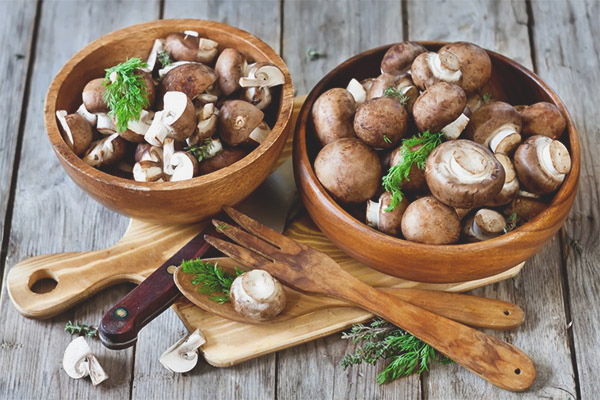
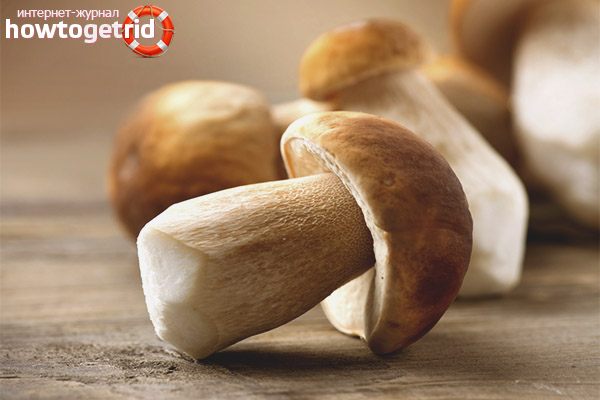
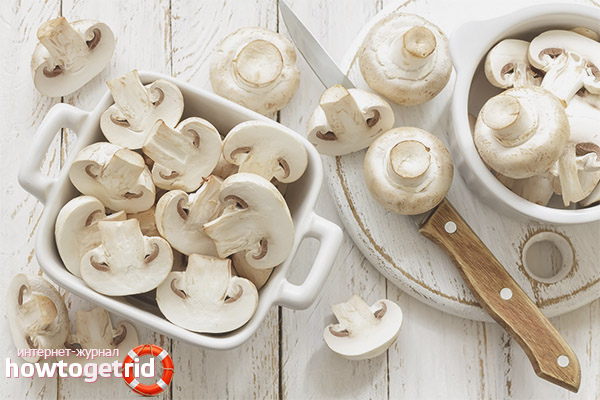

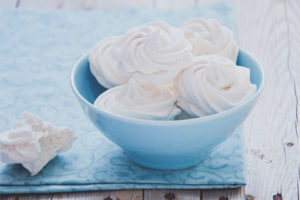
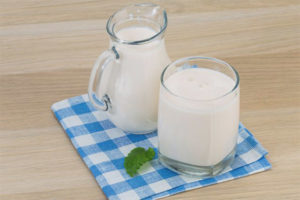
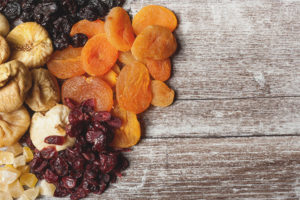
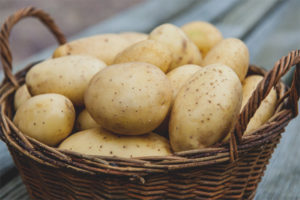
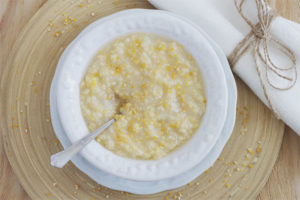
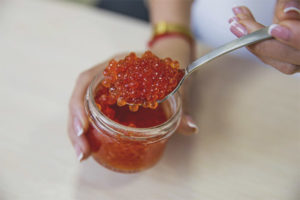
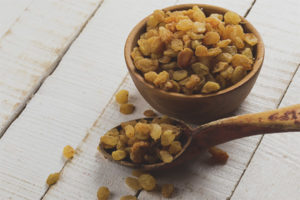
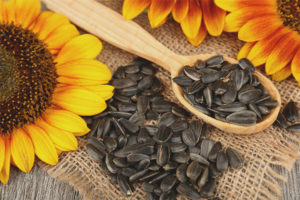
To send